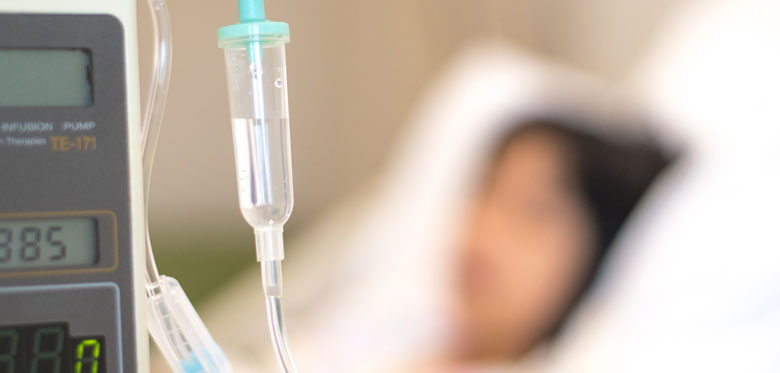Extravasation is when liquid leaks outside a blood vessel into the surrounding tissues. In the medical negligence context, extravasation can occur accidentally during administration of medication or fluids, which can result in serious injury to the patient.
Extravasation injuries are rare occurrences and are not always avoidable, even with preventative measures. They can occur for a variety of reasons, for example, when cannulation was attempted too many times in small veins, when the incorrect injection site is used, when the drug is being administered too quickly or if there was an obstruction to the line administering the drug. If the standard preventative measures were not followed and/or the correct actions when extravasation occurs were not done or were delayed, there may be a case of medical negligence.
Common signs and symptoms to look out for with extravasation injuries includes but are not limited to the following:
- Pain
- Erythema (redness of skin)
- Swelling
- Tenderness
- Blistering
- Darkening/staining of skin
- Exfoliation of skin
- Ulceration
It should be noted that not all of the above signs and symptoms will be present in each case and it will also be dependent on the drug that is being administered.
There are a number of drugs which are known to cause extravasation injuries includes but are not limited to the following:
- Chemotherapy
- CT contrast
- Iron
- Calcium
- IV fluids
- Antibiotics
- Acyclovir
- Anaesthetics
While chemotherapy drugs are more obvious for causing serious harm in extravasation due to their cytotoxic nature (meaning they are toxic to cells), non-cytotoxic drugs should not be overlooked as they can also cause serious injuries as well. For example, iron extravasation injuries can result in permanent discoloration / staining of the skin.
Early treatment of extravasation injuries can minimise the damage. This could involve stopping the infusion of the drug that is leaking, aspirating the leaking drug, heat treatment, cold treatment and/or administering another drug (i.e. hyaluronidase) to counter the effects of the leaking drug.
A referral to a plastic surgeon for further assessment and treatment may also be indicated.
Serious cases of extravasation injuries can require further surgery and treatment for the tissue damage. Patients may also require cosmetic treatment to improve the appearance of any resulting scarring, which could involve skin camouflaging, laser therapy or plastic surgery.
If you or a loved one has suffered an injury due to the negligence of a medical or health professional then we may be able to help you pursue a claim for compensation. Our leading team of experts are on hand to offer advice, so please get in touch with us on 0161 696 6165 or complete our online enquiry form and we will contact you directly.




Comments